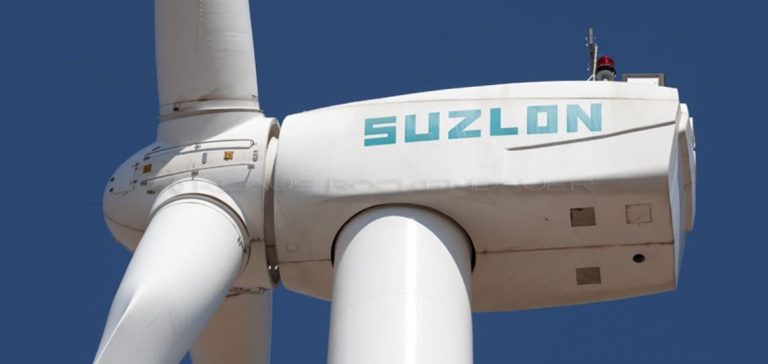The Suzlon Group, a leader in the renewable energy sector, has entered into a strategic 400 megawatt (MW) agreement with Jindal Renewables Power Private Limited, a subsidiary of the Indian conglomerate Jindal Group. This partnership represents the first wind energy project for the renewable energy division of the Jindal Group, thereby strengthening its commitment to environmental sustainability.
This 400 MW order is the largest ever won by Suzlon in the Commercial and Industrial (C&I) segment, consolidating its leadership position in the Indian renewable energy market. With this new order, Suzlon’s cumulative order book now stands at nearly 5.4 gigawatts (GW), highlighting the company’s continued growth in the clean energy sector.
Deployment of Wind Turbines in the Koppal Region
Suzlon will supply 127 state-of-the-art wind turbine generators (WTGs), equipped with Hybrid Lattice Tubular (HLT) towers, each with a rated capacity of 3.15 MW. These installations will be implemented in the Koppal region, located in the state of Karnataka. The power generated will be used for captive consumption in steel plants located in the states of Chhattisgarh and Odisha, thereby enhancing the operational sustainability of these facilities while contributing to India’s green energy objectives.
Girish Tanti, Vice President of the Suzlon Group, stated: “We are proud to partner with the Jindal Group in this bold initiative towards a low-carbon future. By harnessing wind energy, we are revolutionizing steel production, thereby aligning our collaboration with India’s vision to achieve carbon neutrality by 2070. This partnership sets a new benchmark for sustainable practices, fostering growth while protecting our planet.”
Commitment to Carbon Neutrality
Bharat Saxena, President of Jindal Renewables, added: “As part of our commitment to cleaner energy solutions, we are taking innovative steps to integrate green energy into steel manufacturing. This reduces the group’s overall carbon footprint and ensures long-term sustainability. This collaboration marks the beginning of a new era in sustainable steel production, enabling us to achieve the group’s carbon neutrality commitment by 2047.”
JP Chalasani, Chief Executive Officer of the Suzlon Group, emphasized the importance of this project: “Decarbonizing the steel sector is a crucial step towards achieving India’s renewable energy targets. With the collaboration of two major Indian conglomerates, we are reassessing and strengthening steel manufacturing operations. This partnership is a testament to ‘Aatmanirbhar Bharat’ (Self-Reliant India), and I am confident that this alliance will inspire many industry players to reassess their operations, thereby collectively contributing to a more sustainable future.”
Impact on the Renewable Energy Market
This 400 MW project is not only a milestone for Suzlon and Jindal Renewables but also has a significant impact on the renewable energy market in India. By integrating substantial wind capacity into steel production, this partnership demonstrates a viable path for carbon-intensive industries to adopt more eco-friendly practices without compromising operational efficiency.
Furthermore, this project contributes to the diversification of India’s energy mix, reducing dependence on fossil energy sources and promoting a transition towards cleaner and more sustainable energies. This aligns with national objectives to increase the share of renewable energies in the country’s total energy consumption.
Future Prospects and Developments
With this project, Suzlon and Jindal Renewables pave the way for other similar initiatives in the industrial sector. Integrating wind energy into heavy production processes can serve as a model for other industries seeking to reduce their carbon footprint. Additionally, this partnership strengthens collaboration among key players in India’s renewable energy sector, fostering innovation and the development of advanced technologies in the field of clean energy.
Industry experts believe that this type of collaboration is essential to meet the ambitious carbon emission reduction targets set by the Indian government. By providing sustainable energy solutions to industries, Suzlon and Jindal Renewables play a key role in transforming India’s energy landscape.






















